By Kevin Hymel
When word reached 21-year-old Private Bradford “Brad” Freeman in Mourmelon-le-Grand, France, that the entire 101st Airborne Division was being put on 24-hour alert for movement to the front, he was neither surprised nor shocked. “They told us to go, so we went,” he said.
Freeman, a farm boy from Artesia, Mississippi, served as a mortarman with Lieutenant Norman Dike’s Easy Company, 506th Parachute Infantry Regiment, 101st Airborne Division, the “Screaming Eagles.” He had fought in Normandy and the Netherlands, having parachuted into both, and had survived three months of combat against the Germans without serious injury. Now he was in Mourmelon enjoying his time in reserve, watching his fellow Easy Company comrades play cards and dice and cleaning his rifle and mortar.
That all changed late on December 17, 1944, when Freeman and his comrades were put on alert. Three German armies had broken through the American First Army line in Belgium and Luxembourg—the Battle of the Bulge. To counter this threat, General Dwight D. Eisenhower, commander of the Supreme Headquarters Allied Expeditionary Force (SHAEF), ordered his only reserve forces—the 82nd and 101st Airborne Divisions—into the fray.
The Screaming Eagles scrambled to organize. “They got everyone out of Paris that they could find,” Freeman recalled. The men in Mourmelon at least had their weapons. “We were supposed to turn in all our guns,” he explained, “but no one did.” The commanders and noncommissioned officers ordered the men to prepare to move out. “We got ready, but we didn’t have much ammo.” In the confusion, Freeman spotted a Lieutenant Bush, with whom he had served in the 541st Parachute Infantry Regiment back in the United States. Freeman hollered to him, asking what unit he was with now. “I don’t know!” Bush hollered back. “I haven’t been placed yet!”
The men boarded trucks to take them into combat, having no idea where they were headed. Freeman stood in the back of his truck, near the tailgate, holding onto a strap for balance, hoping it wouldn’t break. “We were packed so tight, no one even thought about moving,” he explained. “You didn’t even move your feet.” The ride was cold and rough, with the men adapting to arriving to combat not in aircraft but in trucks. “If they went up a hill, you leaned forward,” he said. “If they went down a hill, you leaned back just a little bit.” Every time the truck sped dangerously around a corner, Freeman thought, “This is it!”
After an entire day of driving through light snow and freezing rain, the trucks stopped outside the small town of Bastogne, Belgium, where the men piled out. “I was tired when we stopped,” said Freeman, “and was glad to get out.” As they began their march into the town, a hoard of wounded and worn-out Americans, walking the other way, warned them of what lay ahead. The men were from the 28th Infantry Division and several armored units that had fought for three days to delay the Germans in their offensive toward Bastogne. Now they were spent.
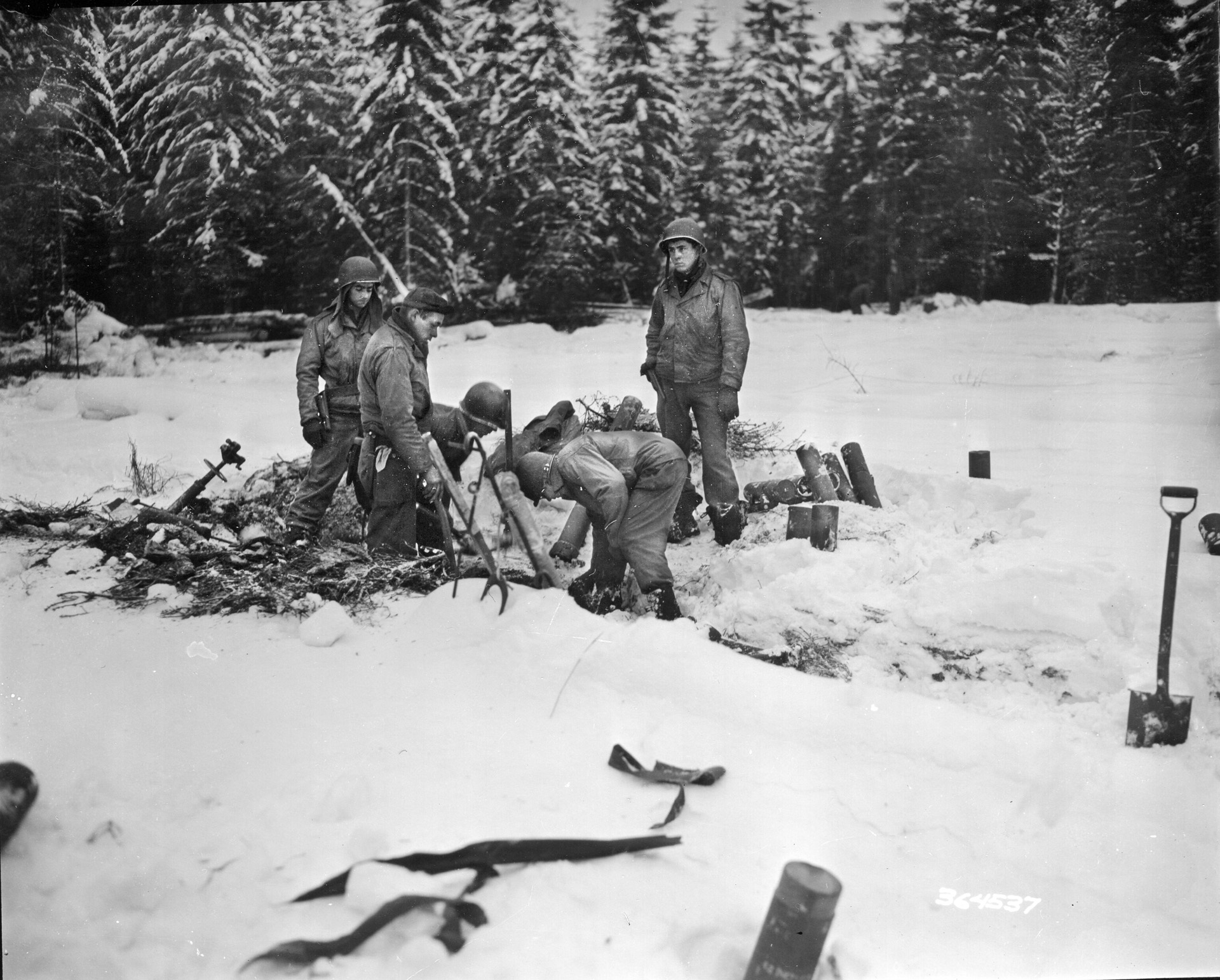
One of the soldiers, a six-and-a-half-foot-tall sergeant, told the paratroopers they risked death if they advanced, “since the Germans were shooting everyone,” Freeman recalled. Private Edward “Babe” Heffron, a rather short paratrooper from Philadelphia, “told him to just go wherever he was going to and we’d stop it.” Freeman appreciated Heffron’s attitude. “He was a funny guy.”
Easy Company passed through Bastogne, where Freeman heard gunfire. “This is it again,” he said to his fellow paratroopers. The men marched to a crossroads and up a hill, occupying the Bois Jacques (Jack Woods), which overlooked the village of Foy. With 2nd Battalion in reserve, Easy occupied the southern section of the woods. Freeman dug a mortar pit about four feet deep near battalion headquarters. Captain Richard “Dick” Winters, Easy Company’s original combat commander whom Freeman greatly respected, had been transferred to battalion staff and occupied a headquarters foxhole. “Winters wasn’t too far,” said Freeman.
On December 20, Easy moved up to the front line on the northern edge of the woods. Freeman communicated with Lieutenant Dike through two-way phones, always ready to drop mortar rounds wherever Dike requested. To keep dry, Freeman and his fellow mortarmen draped tarps over their foxholes. For warmth, they burned gasoline-soaked paper in their canteen cups inside their covered holes. “Whenever you blew your nose,” he recalled, “it was soot.”
Soon after Easy’s arrival, the Germans completed their encirclement of Bastogne. To them, Bastogne was a vital communications link, a “road octopus,” in the words of the 101st’s logistics officer, Lt. Col. Howard Kinnard. To the men of the Screaming Eagles, being cut off meant no more reinforcements, no supplies, and limited medical care for any wounded. Freemen spent the siege hungry, cold, and tired. Hot chow, when the men could get it, consisted mostly of hard bread and pea soup served from a five-gallon tank. “That was a good meal,” said Freeman, “a few peas and some bread.” The men had to leave their foxholes, alone or in pairs, to fill their cups. One night the Germans shelled Easy’s position, hitting the hot food supply and destroying it right after they had eaten. “It blowed up!” recalled Freeman, his disappointment at losing the supply still sharp after 75 years.
When the skies cleared on December 23, two American Republic P-47 Thunderbolt fighter planes from the U.S. IX Air Force swooped out of the sky and strafed the German lines. “We were waving at them,” Freeman recalled, “but the bullets kept coming.” The aircraft rounds crossed into the American lines, kicking up snow around Easy Company. “Both those planes put bullets all around us,” he said, but no one in the company was hurt. Pfc. Silas Harrellson, a replacement, was out relieving himself when the fighters attacked, and he dashed back to Easy’s lines. “He came back holding his britches at half mast,” said Freeman, “and he dived into his foxhole head first as a bullet hit the edge of his hole.” The scene was special to Freeman. “That was the time I was scaredest and laughed the most.”
Freeman heard a rumor that Colonel Robert Sink, commander of the 506th, had devised an answer to the friendly fire from an unlikely source. “I heard [that] Sink called one of the Red Tails,” said Freeman, referring to the famous Tuskegee Airmen, the African American pilots of the 332nd Fighter Group, whose North American P-51 Mustang fighters sported a distinctive red vertical stabilizer. “Sink asked him how long it would take and he said about an hour, and those boys came in, knocking the snow off the pines.” However, since the famed Red Tails were flying cover for bombers in Italy during the Battle of the Bulge, these aircraft must have come from a different unit, such as the 360th Fighter Squadron, whose crews also painted their vertical stabilizers red.
The Germans attacked Easy Company on December 24, Christmas Eve. Freeman spent the battle dropping mortars on the attacking enemy. The Germans spent the rest of the siege content with firing an inaccurate artillery piece from Foy. “They covered the gun with sheets and things so you wouldn’t know anything about it,” explained Freeman. “It would hit in the valley, and we could see it blow up the snow. It didn’t bother us.”
Later that day, the men listened to Brig. Gen. Anthony McAuliffe’s Christmas message to the troops. McAuliffe was in temporary command of the division, Maj. Gen. Maxwell Taylor having departed for the United States a few days before the German attack. In his message, McAuliffe extolled the exploits of the 101st and its dogged defense of Bastogne. He also revealed that he had replied to a German surrender request with a single word: “NUTS!” The men loved it. “I thought it was mighty good,” said Freeman. “He let us know that we weren’t giving up.”
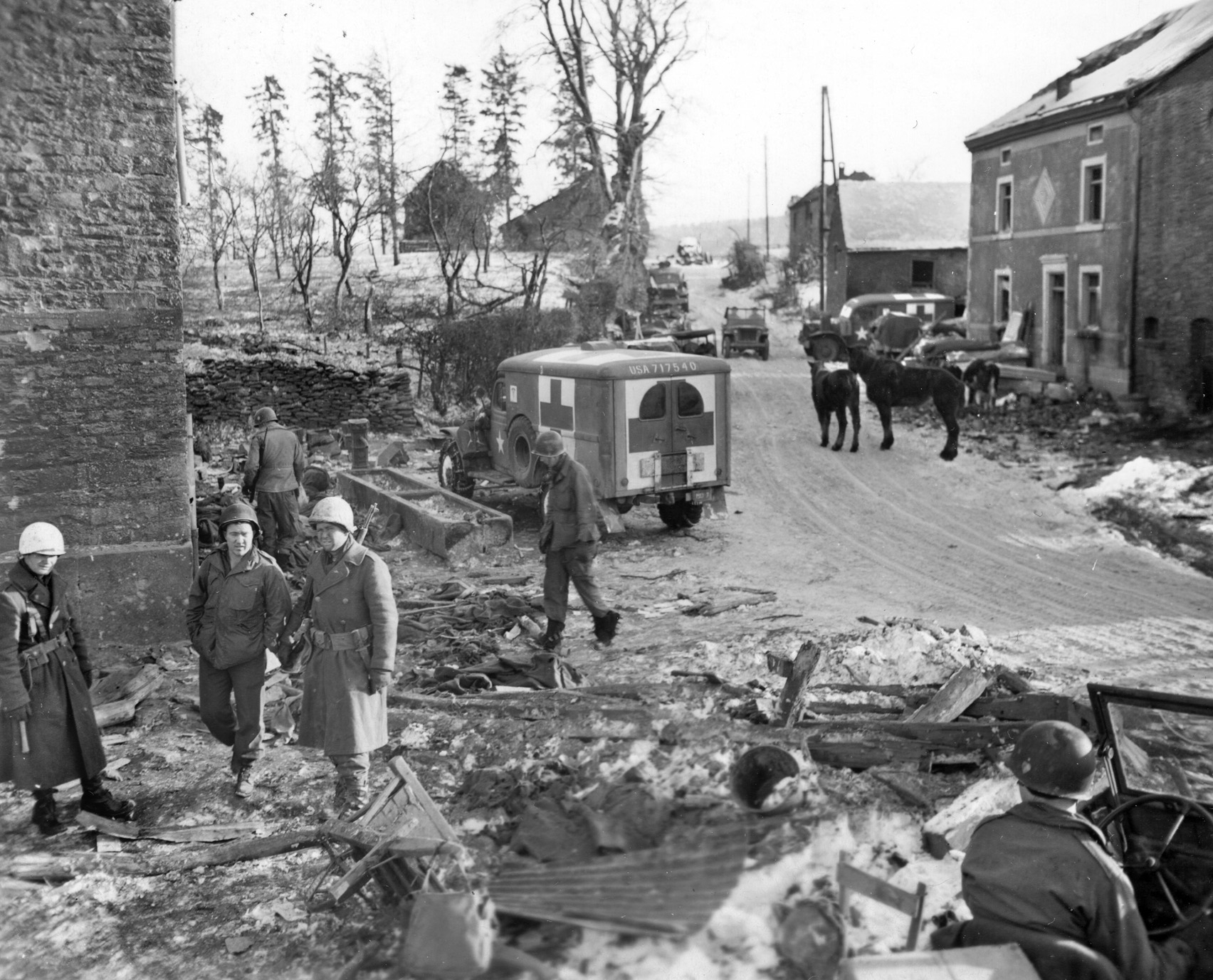
Throughout the siege, Freeman never worried that the Germans would break though. “We didn’t ever see any tanks,” he said. A few days after Christmas, he walked into Bastogne with a few other paratroopers. As he left, he turned around and was shocked at its transformation from the neat little town he had seen on December 19. “Bastogne was torn up and bombed,” he reflected. The siege was taking a heavy toll. As they continued on their way, one of the paratroopers shot himself with his weapon. “He was fooling with his gun, and it went off.” This may have been Corporal Donald Hoobler, who shot himself in the leg with a captured Belgian-made .32 automatic pistol on January 3, 1945. The pistol had no safety switch.
Once the 4th Armored Division of General George S. Patton’s Third Army broke the siege from the south on December 26, Easy Company, as well as the rest of the regiment, pushed north to retake the town of Foy on January 13, 1945. Two days later, at 4 am, Freeman was digging a new foxhole for his mortar somewhere between Bastogne and Foy when he got the word to move out. “By the time we got to the good dirt, from where we could keep the snow from melting,” he said, “they told us we were going in again.” Freeman was exhausted, and his clothes were soaking wet from digging.
The men headed up a road with only their weapons and ammunition. “We didn’t know anything, and we were just messing around,” he recalled. Then a large group of Germans appeared, walking south. Fortunately, they had already surrendered and were heading to the American rear, so Freeman and his comrades gave them the right of way. “I had to stand on the opposite side of the road while they passed.”
The 506th was attacking Noville, about a mile north of Foy. Freeman and Private Ed Joint were ordered to help clear the town of snipers once the company had captured it. As they headed through a wooded area near Recogne, northwest of Foy, they came across a horse with a broken leg. The two men were debating the most humane way to put it down when Pfc. John Sheehy walked up and shot the horse in the neck. It went down, but the bullet did not penetrate the hide. “Another paratrooper shot the animal in the head with his M1 Garand rifle,” said Freeman, “killing it and putting it out of its misery.”
Suddenly, two German Nebelwerfer rockets (known to the Americans as “Screaming Meemies” for their intense whistle) screeched toward them. “It was just howling when it came in,” said Freeman. “I got hit in the leg.” Shrapnel penetrated his right knee. “It didn’t get the bone, but my foot would drag.” Joint also went down with shrapnel in his arm. Easy Company medic Eugene “Doc” Roe rushed over and started cutting off Freeman’s pants leg to treat his wound. “Deal with Ed! Deal with Ed!” he demanded. “Don’t deal with me!” Freeman felt the stinging cold as his skin was exposed to the raw air. Roe patched up both men and ordered them to the rear.
As the two paratroopers limped away, another salvo from the Screaming Meemies screeched in. Freeman ducked between two dead mules to escape the explosion. Once the snow and dirt settled, the two paratroopers continued their journey. “I could still walk, but I couldn’t control my foot,” he said. Eventually, a jeep arrived and took them south to Bastogne. Freeman’s war was over.
From Bastogne, Freeman was put on a boat bound for a hospital in England, where he spent three months in recovery. Surgeons repaired his right leg and kept it stretched so it would not heal shorter than his left. “I walked on my toe for a long time,” he said. “It was sticky; I felt like I had a pin in it.” Once he recovered, he caught up with Easy Company on April 7, 1945. By then the company occupied the west bank of the Rhine River, across from Düsseldorf. It would soon head east by train and later by DUKW amphibious trucks through southern Germany.
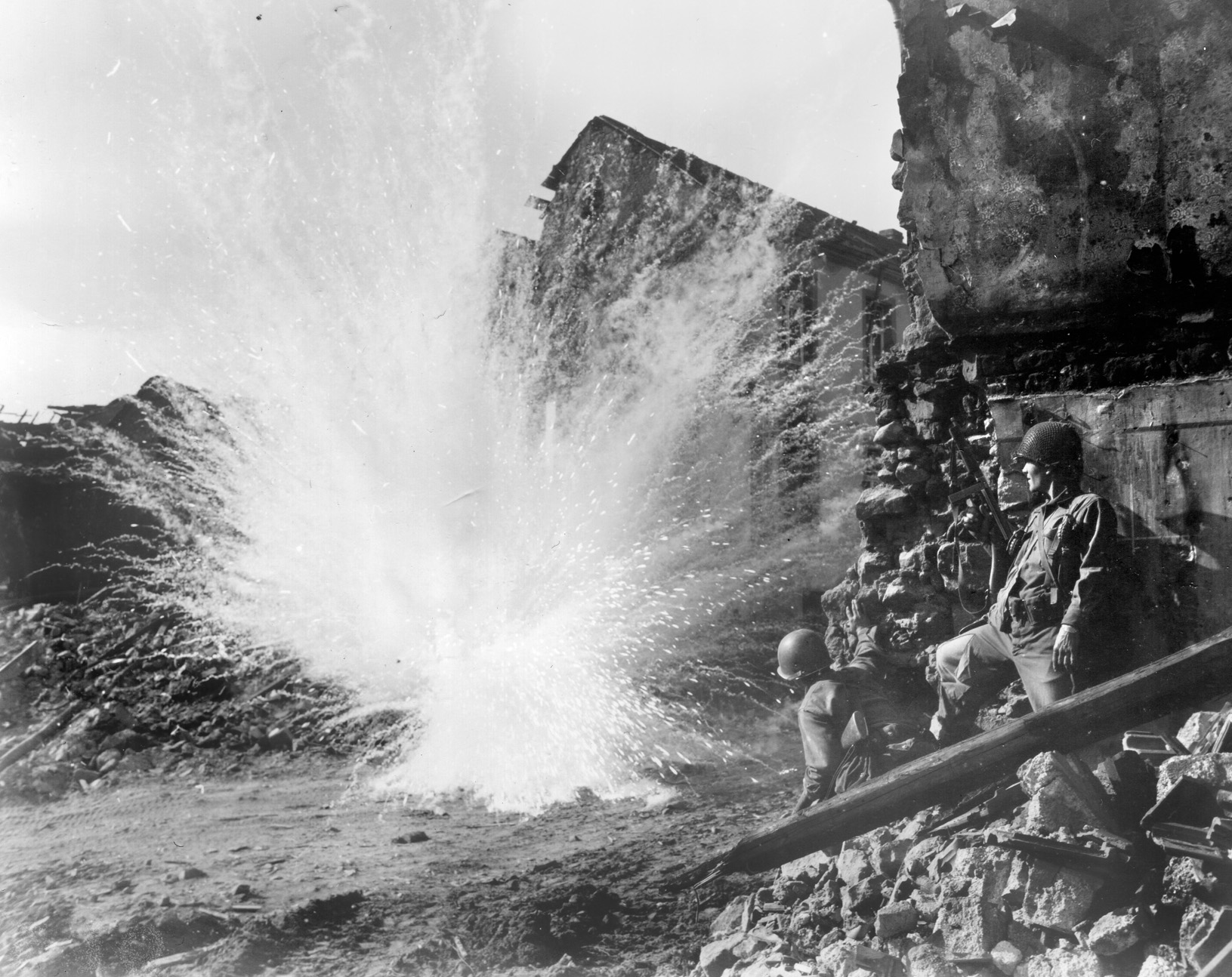
On May 4, Easy Company occupied the German town of Berchtesgaden, home of Adolf Hitler’s mountaintop retreat, the Berghof, with its famous “Eagle’s Nest” lookout. With the Americans at the far end of a flimsy and unreliable supply line, food ran low. Freeman and some of his fellow paratroopers remedied the problem by picking up shotguns. “We went hunting, and we fed ‘em good,” he said. “We cooked venison, quail, and wild guinea fowl.”
On May 8, Germany formally surrendered to the Allies. “I was just glad it was over with,” Freeman said. Everyone started tallying their combat points, hoping to reach the magic number of 85. Soldiers earned points for time in service, battles, medals, and their number of dependents. Freeman had accumulated 126 points. He would not remain in Europe long.
Freeman ended the war with the rest of the company in Zell am Zee, Austria, where the men trained, relaxed, drank, and entertained themselves. One day some of the men planned to make a parachute jump into the town’s mountain lake to test new quick-release harnesses. Freeman was supposed to make the jump but begged off. “Some fellah wanted to jump,” said Freeman, “so I gave him a good blessing.” Freeman was training to fight in the Pacific when he learned about the atomic bombs dropping on Japan. “I was glad,” he said, “but I didn’t celebrate.”
With no more combat training needed, Freeman was assigned to shipping horses into Germany. He loaded horses into boxcars and rode with them to their destinations, where he passed them off to German civilians. “I didn’t know where the horses were going,” he said. On one delivery, Freeman opened the boxcar door and found himself in a huge railroad yard. Surprisingly, French soldiers greeted him. “We were in their territory,” he recalled. “They got us off and notified the 101st.”
With high-point men having already departed, what was left of the regiment headed south to the French coastal town of Marseilles to sail for the United States, but as the men arrived the French Merchant Marine went on strike, leaving them stuck for two weeks. Finally, the men boarded a ship and headed home. As they sailed through the Mediterranean and into the Atlantic, they were treated to a wonderous sight. “We could look up and see the Rock of Gibraltar,” Freeman recalled. After an uneventful trip, the ship arrived in Boston, Massachusetts. Freeman did not bother to call his parents and instead boarded a train for home. There was a simple reason: “I didn’t even know they had a telephone.”
After a few days, the train arrived at Camp Shelby, Mississippi. His oldest brother, Earl (Freeman had four older brothers), greeted him. “He carried me from the train and brought me home,” he said. They stopped off in Meridian, where Earl called home to tell their parents of Freeman’s imminent arrival. They had a phone after all.
The two brothers reached home, and as they climbed the hill in front of their house, Freeman’s father walked onto the front porch. “He shook hands with me and didn’t say nothing,” he recalled. “He just opened the door and said, ‘Go on in.’” Freeman’s mother was waiting for him but could not hug her son. His brother Carry had returned a day earlier from the Pacific and hugged his mother so tightly she broke a rib. “That was hard to swallow,” Freeman said. “She was rubbing my knees and seeing about me.” The date was December 2, 1945. Brad Freeman was home.
On Freeman’s second Sunday home, he saw Willie Gurley and reminded her that they used to play together as children. They started dating and eventually married on June 29, 1947. They had two girls, Beverly Clark in 1948 and Rebecca Louis in 1953. After more than 60 years of marriage, Willie passed away on October 5, 2008.
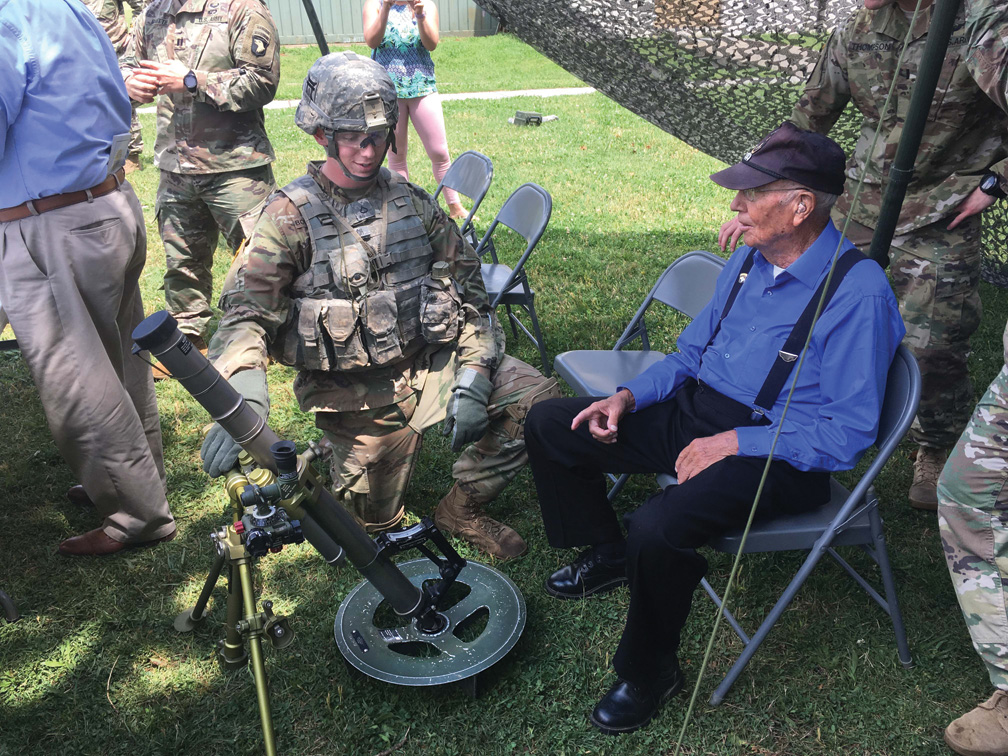
Upon Freeman’s return from the war, he went to work driving a truck for most of 1946, then went back to college on the G.I. Bill but found himself bored. He held a number of jobs, including working as a mailman from 1954 until 1986 and drilling for oil on his grandmother’s property. “I get a little check every year,” he said about his oil revenues.
But his favorite job was farming. “I always liked it.” Freeman tended cows and grew peaches, pears, and hay. When he wasn’t farming, he hunted and fished and enjoyed just sitting on his front porch. As of 2019, at the age of 95, Freeman continues to run his farm (he ran a little late for this interview because he had to park his tractor in the barn).
In 1989, Dick Winters wrote Freeman about the upcoming book Band of Brothers by historian Stephen Ambrose, which chronicled Easy Company’s wartime exploits. “Although your name is not mentioned under the index you have the satisfaction of knowing you were their! [sic]” wrote Winters. “You got the job done.” Winters then addressed Freeman’s role in Operation Pegasus, the river-crossing rescue of British paratroopers in the Netherlands. “You know many of the details about the rescue that your leaders and his never knew. Further more [sic] you never forgot one detail.” Winters concluded with the two-word saying that became his maxim: “Hang Tough!”
Winters thought highly of Freeman. In 1990, Winters wrote fellow Screaming Eagle veteran George Koskimaki, who was finishing a book about the 101st in the Battle of the Bulge, titled Bastogne. Winters told Koskimaki, “Men like Brad never seem to get promotions or decorations for valor, but when the going gets tough, it’s men like Brad that are always there. They got the job done and won the battles.”
Freeman also thought highly of Winters, inviting him to his farm and explaining that he went to church every Sunday to give thanks for “the way my God and you looked after me,” adding, “I never did give up.”
Freeman found that Ambrose’s Band of Brothers gave him a better appreciation of Easy Company’s exploits. “I didn’t know what was going on,” he said of the war. “I just knew what I was in on.” He felt the same way about the HBO miniseries of the same name that premiered in 2001.
After the miniseries, actor/producer Tom Hanks, at Dick Winters’ request, personally invited Freeman to the 2009 Easy Company reunion in Erie, Pennsylvania. Freeman attended and reunited with Ed Joint, whom he had not seen since they were wounded together in 1945.
Today, Freeman takes pride in his association with the 101st Airborne Division and Easy Company. His home is a memorial to his service. Pictures, plaques, and paintings representing World War II airborne combat cover his walls. A large 101st Airborne crest stands outside his front door. Gifts arrive almost weekly from people all over the world wanting to connect with a living embodiment of Easy Company or to just thank him for his service. His friends and acquaintances call Freeman “Mr. B” out of respect.
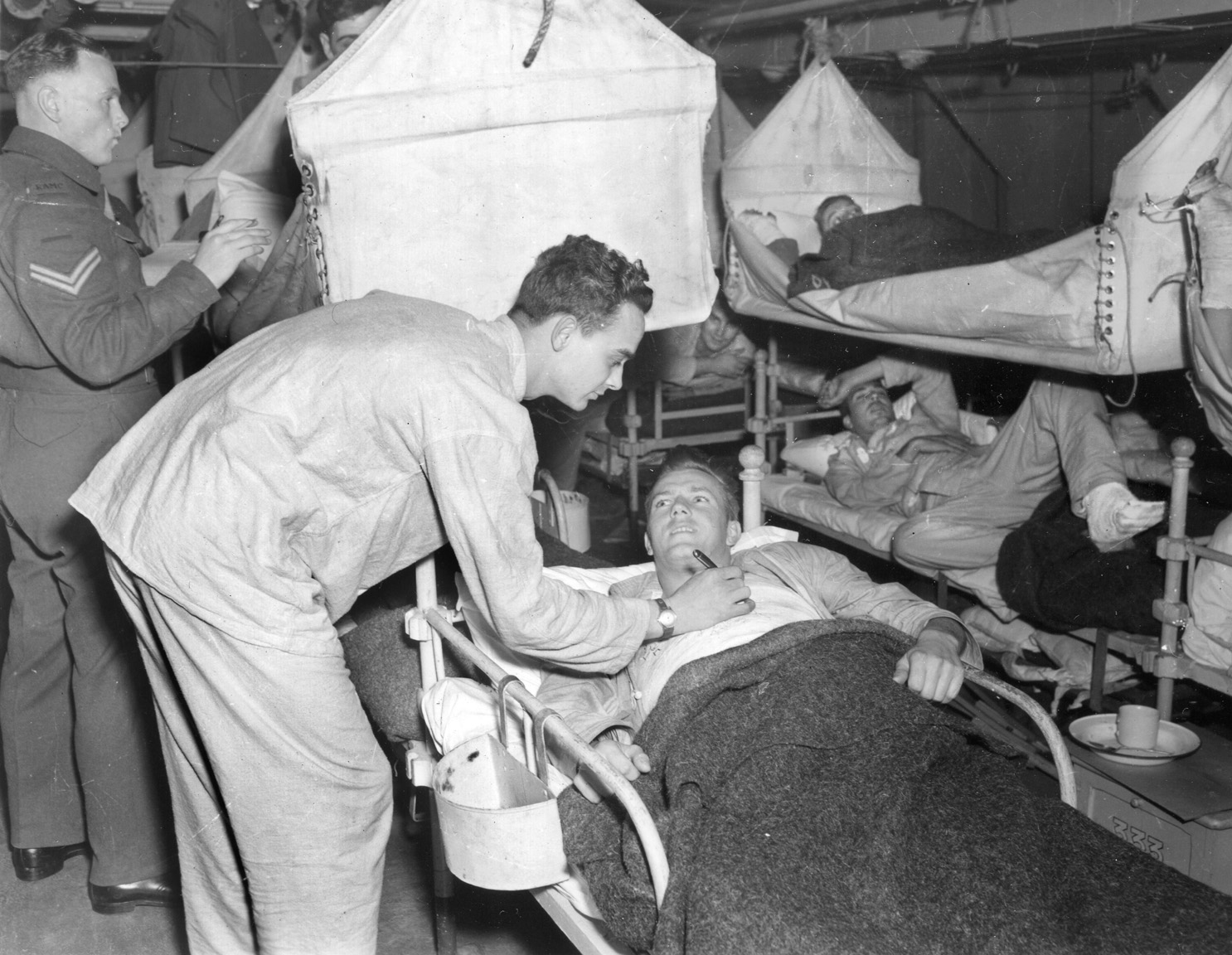
He speaks to school classes and civic groups, explaining his role in World War II and the airborne infantry. He also attends World War II-related conventions, again sharing his story, signing memorabilia, and chatting with other veterans. He has participated in other events, like dropping the puck at a hockey game.
Despite his advanced age, Freeman still enjoys traveling to Europe and revisiting his old battlefields. His knee and leg injuries still bother him, as does his back from the rough ride into Bastogne. He appreciates the way Europeans live their lives. “They should send [American] people here to show them how clean the sides of the streets are.”
Since Band of Brothers, Freeman has stood as an inspiration to today’s Screaming Eagles. In 2017, he attended the 101st Airborne Division’s annual “Day of the Eagles” at Fort Campbell, Kentucky, where he inspected the entire division with Maj. Gen. Andrew W. Pappas, the division commander. Freeman told the general that he must feed his soldiers “better then they fed us, ‘cause they was big boys.”
He later spent a day with today’s Easy Company, 2-506 Infantry, under the command of Captain Zac Shutte. Freeman visited again with Easy’s mortarmen, explaining to them the differences between World War II’s and today’s mortar tubes. He has also attended a change of command ceremony when Shutte transferred from Easy Company to India Company and handed Easy over to Captain Charles Bird.
When elements of Easy Company traveled to Toccoa, Georgia, where the company was born, Captain Shutte and First Sergeant Randy Shorter invited Freeman to come. Freeman slept on a cot at the local armory with the young soldiers and joined them for a run up Currahee Mountain, although Freeman rode in a vehicle. As the soldiers played tag and ran backward up the mountain, one of Freeman’s friends asked him if those soldiers could have run with him back during his training. Freeman simply responded, “Oh yeah.”
Today, Freeman looks back fondly on his experiences in World War II. “I volunteered for it, and I expected to do whatever it took,” he said. “I’m glad that I made it.”
Frequent contributor Kevin M. Hymel is a historian for Arlington National Cemetery and the author of Patton’s Photographs: War As He Saw It. He is also a historian/tour guide for Stephen Ambrose Historical Tours where he leads tours of General George S. Patton’s European battlefields, including locations where Easy Company fought.
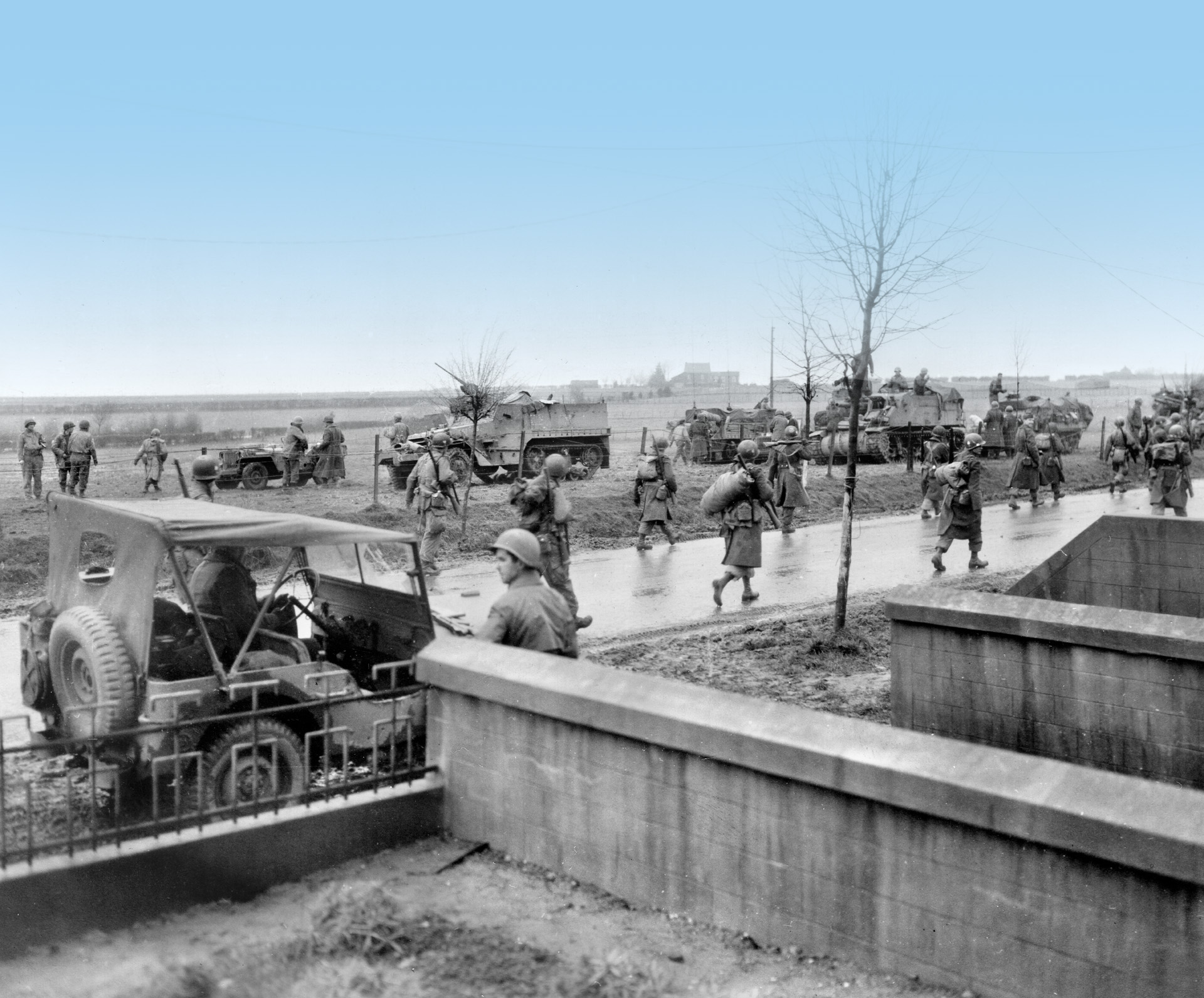
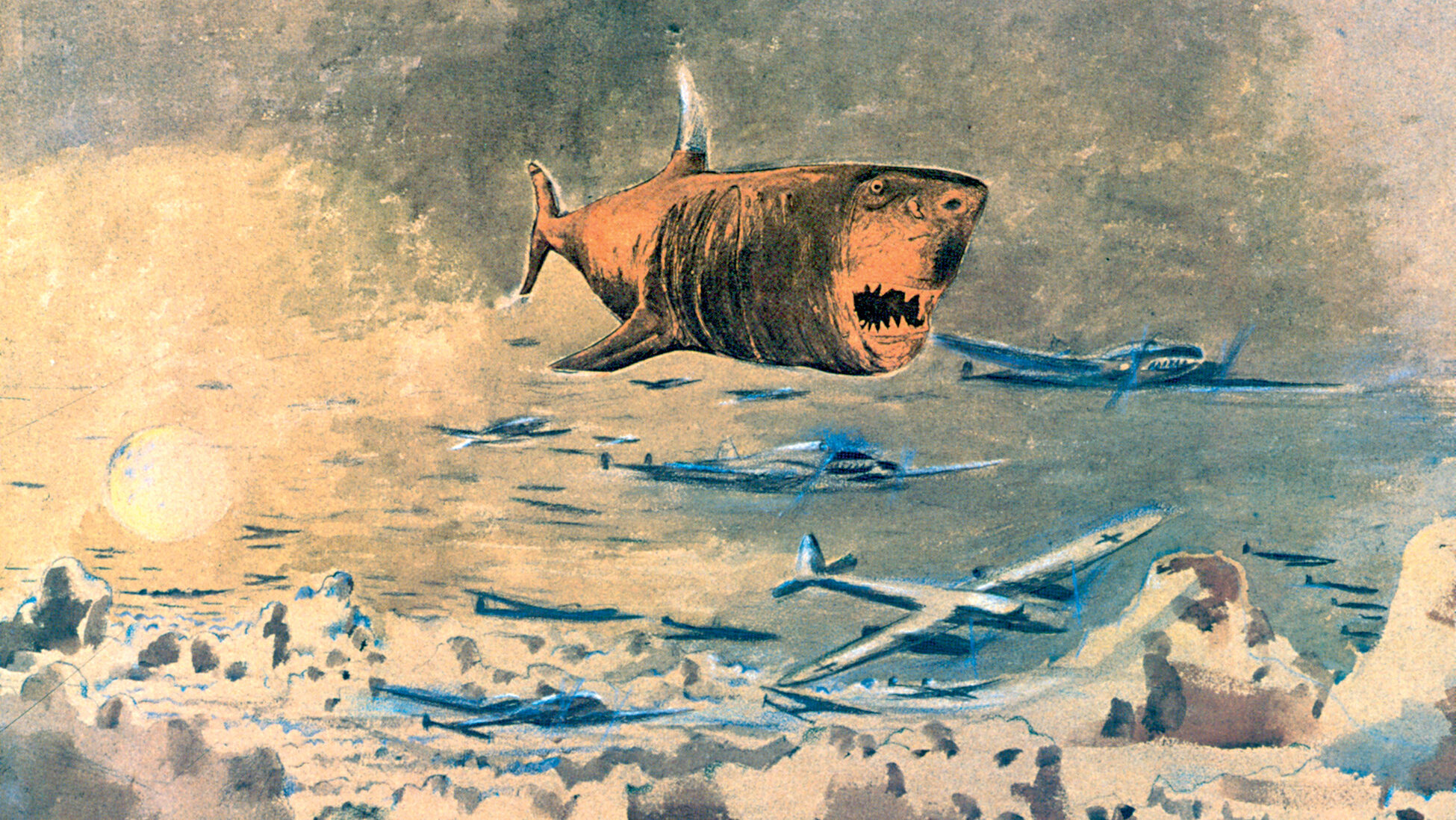
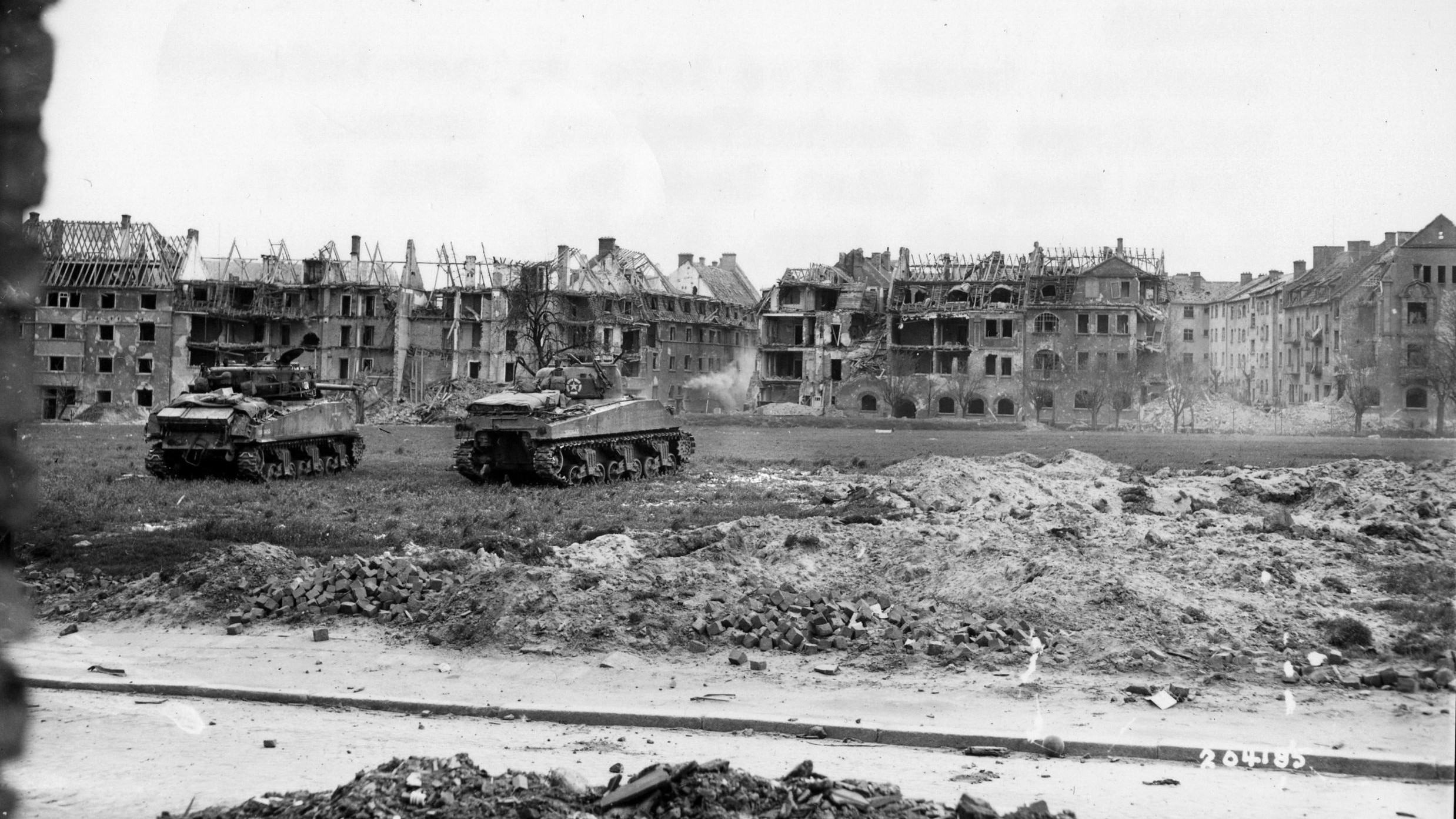
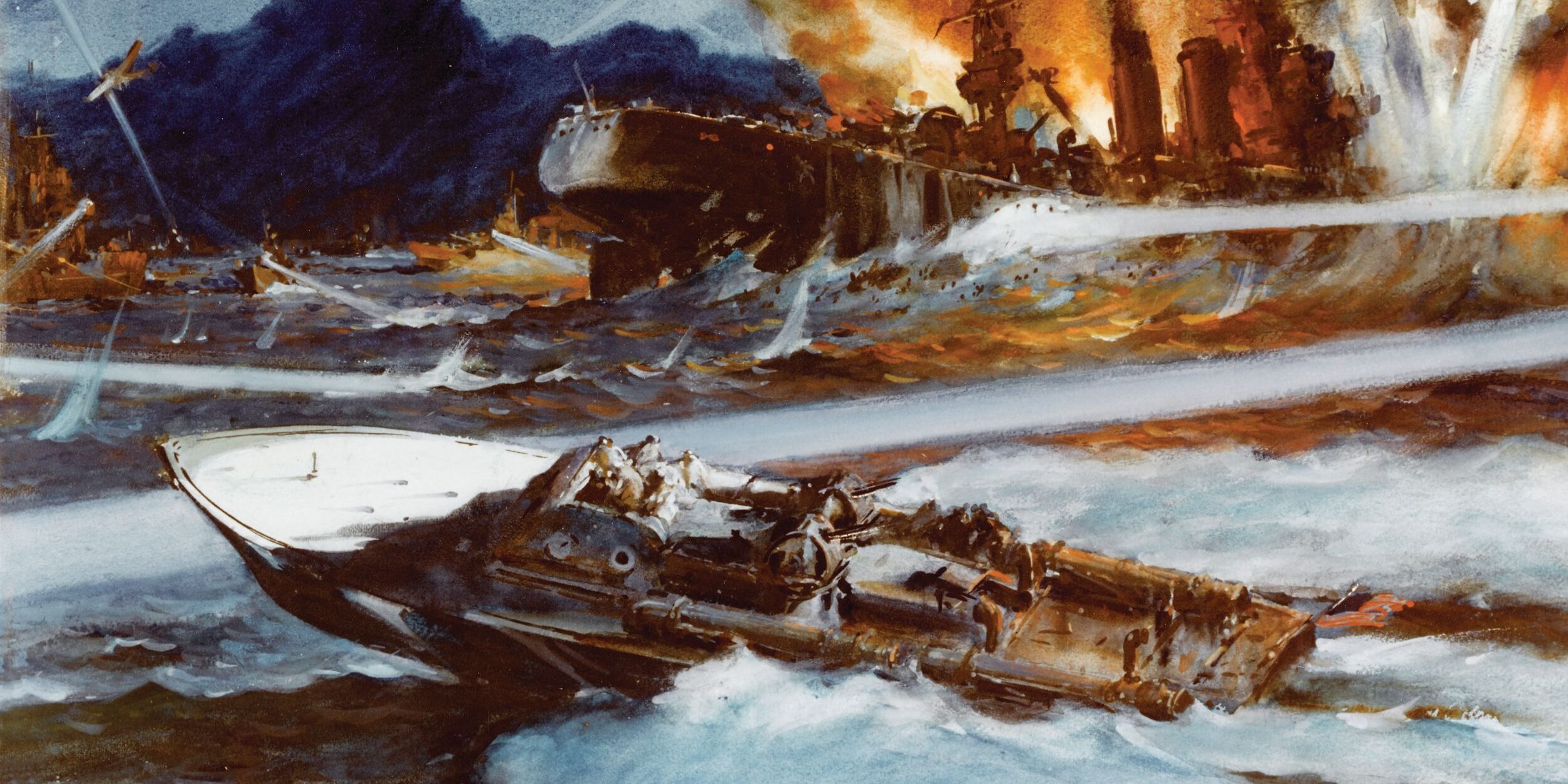
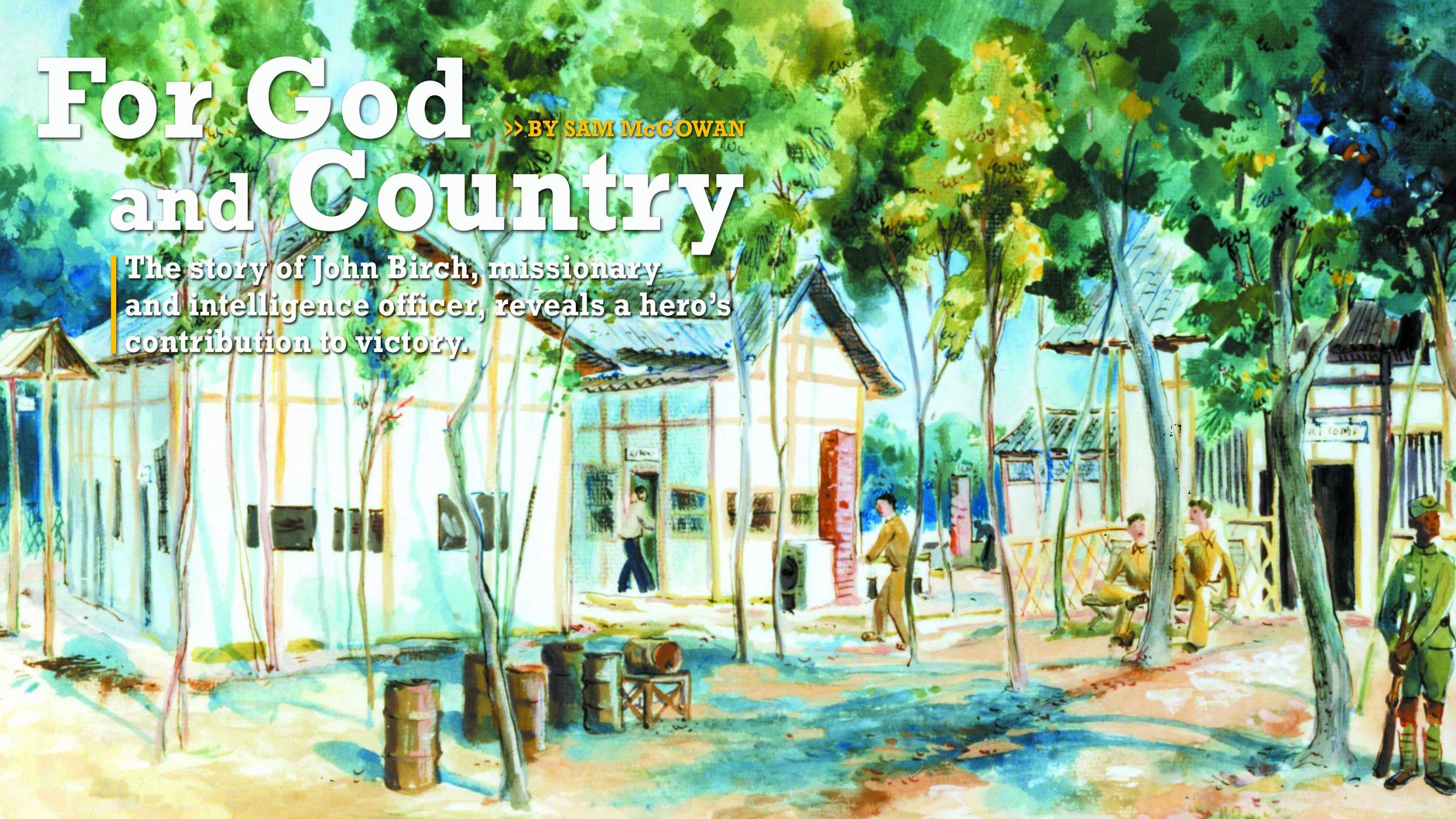
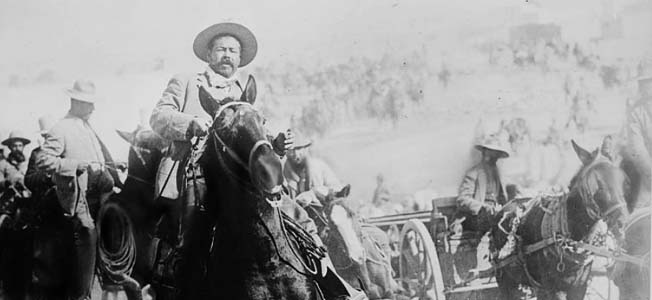
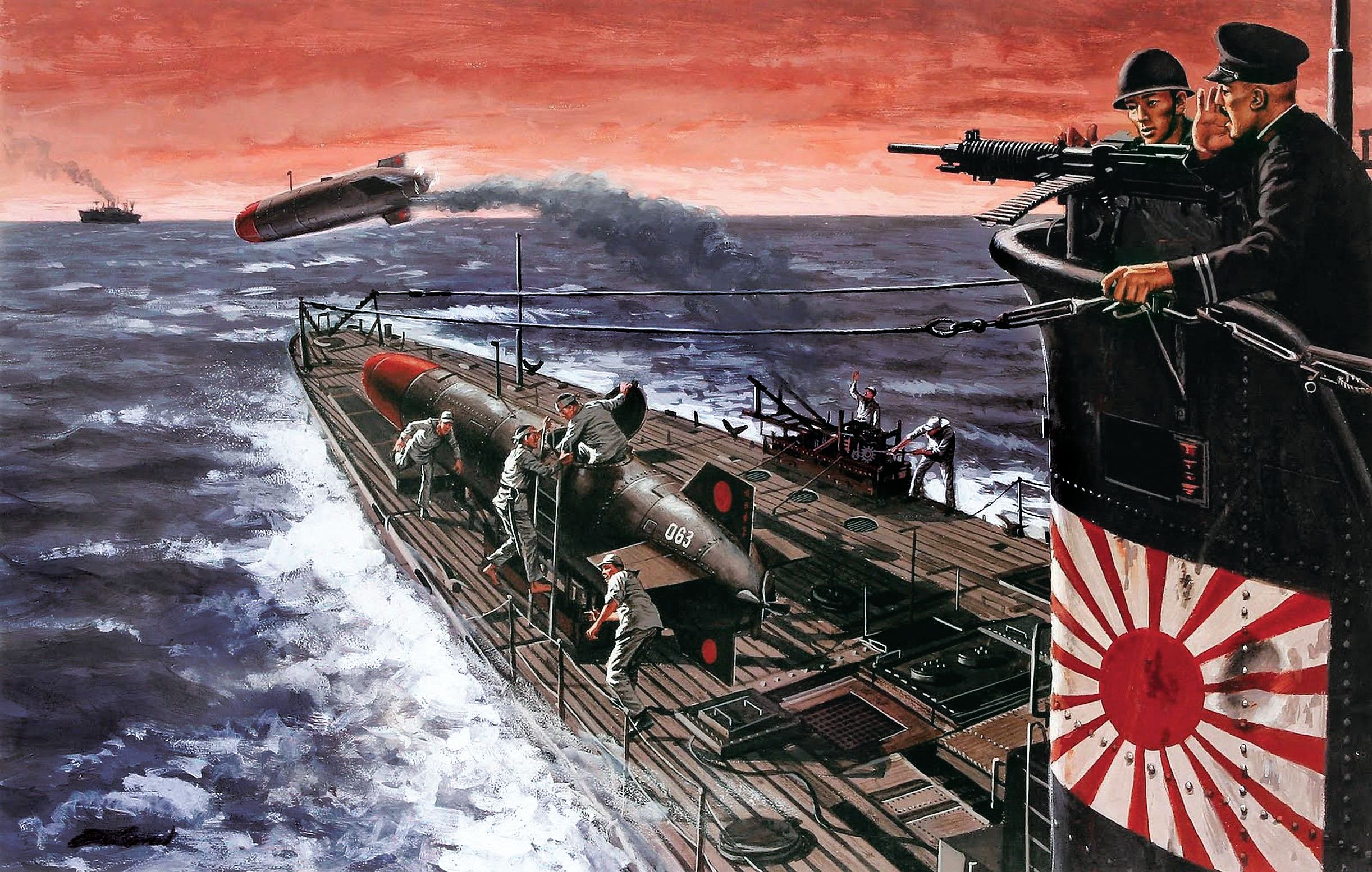
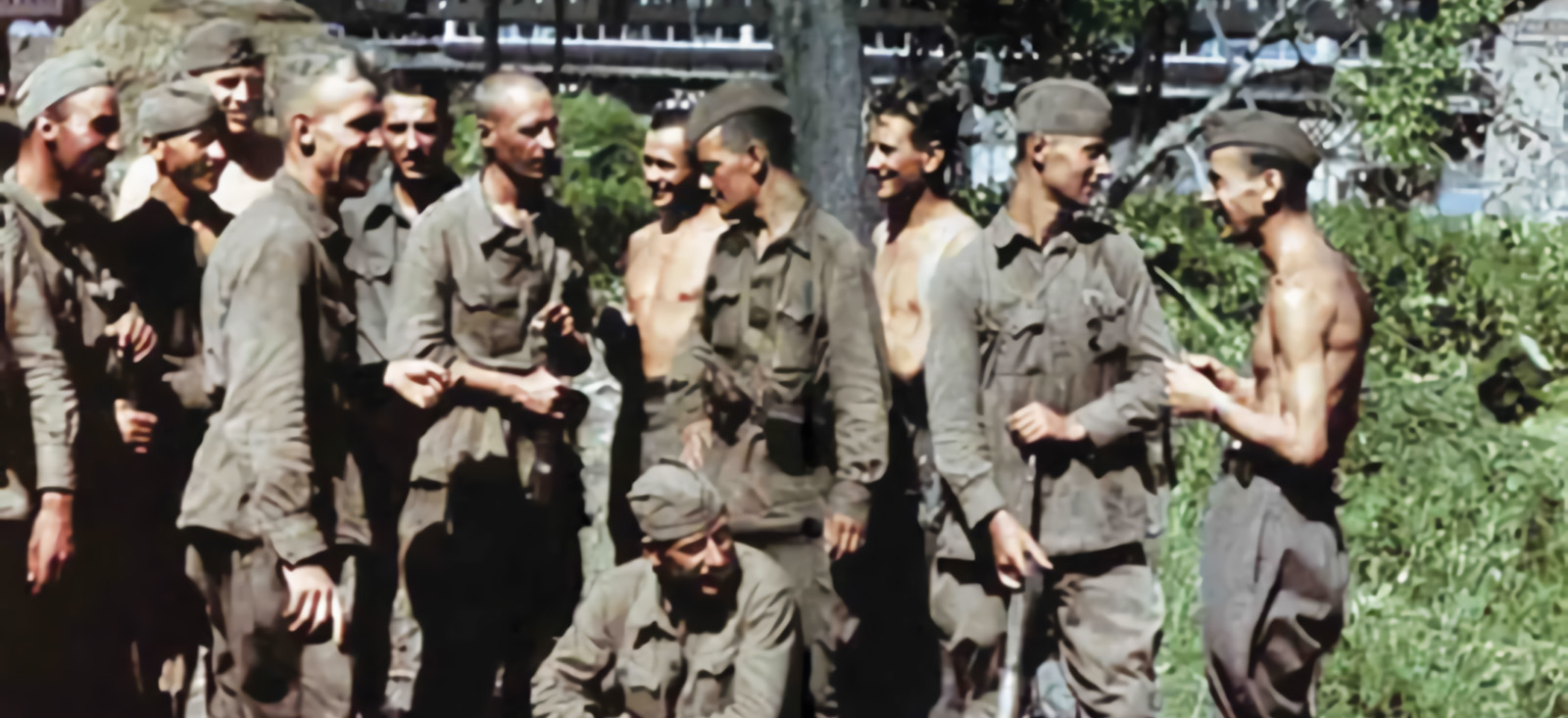
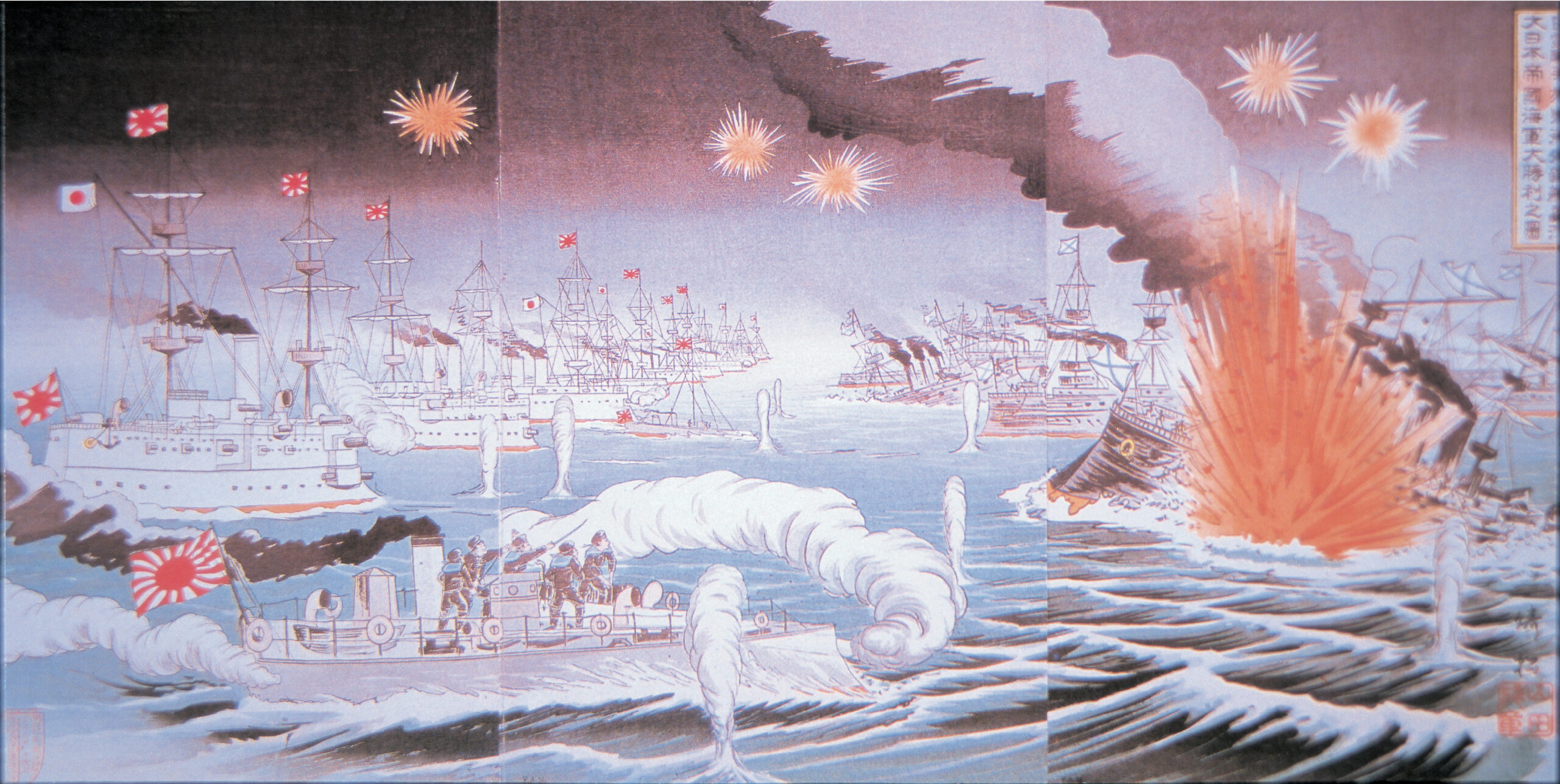
“Bois Jacques” does not actually translate as “Jack Woods,” which is a word-for-word literal translation. The correct translation would be “Jack’s Woods.”